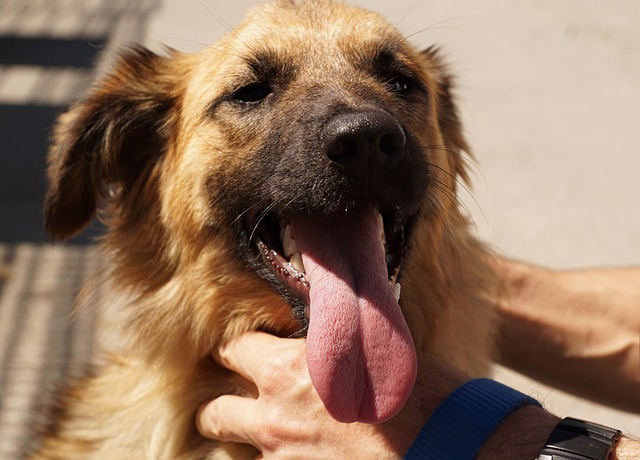
Even the most dedicated dog owners can make a common mistake when it comes to caring for their dog’s health. That mistake is, assuming stinky dog breath is normal.
If your dog seems fine but their breath smells bad you might be forgiven for assuming this is a normal thing. After all, an animal that cleans itself and eats things humans definitely wouldn’t isn’t going to have minty-fresh breath.
So, how stinky is normal when it comes to a dog’s breath?
Realistically, if your dog’s breath smells unusual to normal, or it is so bad it makes you gag, then something is wrong. Your dog’s breath will never be fresh, but it shouldn’t be so disgusting you can’t stand it. If that is the case, something is definitely wrong. Luckily, you can get rid of a stinky dog breath with a proactive approach.
Why Does My Dog’s Breath Stink?
There are many reasons your dog’s breath might smell bad. If the issue only lasts for a day, it may well just be something they ate that was particularly odorous.
Sometimes fishy treats or certain dog snacks can be particularly strong when it comes to affecting your dog’s breath.
If the issue continues for longer than a day, then another issue may well be occurring. Common underlying medical issues that cause bad breath in dogs are:
- Kidney disease
- Diabetes
- Allergies
- Oral disease
Getting your dog to the vet as soon as you notice an issue with their breath is important. The sooner that they get a diagnosis, the sooner treatment can be started, getting them out of discomfort.
Oral Disease In Dogs
It is estimated that by the age of 3 around 80% of dogs have some signs of dental disease. Dental disease may be a rotten tooth, gum disease, abscesses or soft tissue problems in the mouth.
Oral disease is a common reason that a dog’s breath smells bad. It is often the first thing a vet will check when you visit about your dog’s nasty breath. Common signs of dental disease in dogs include:
- Very bad breath
- Swollen red gums
- Brown or yellow tartar buildup on the teeth
- Dogs eating on one specific part of the mouth
- The dog avoids eating
When gingivitis begins it can be halted in its tracks with a professional vet clean and then regular management. If it is left untreated, not only will your dog’s breath get worse, but they will become more unwell.
Slowly the bacteria causing the irritation will get into the bloodstream. The teeth will become wobbly and painful, and the dog may be at risk of heart disease.
Helping Your Dog Avoid Dental Disease & Bad Breath
If you have a dog that is very young, the sooner you can get them used to have their teeth brushed, the better. You can find a handy video on brushing a puppy’s teeth here.
Older dogs can be trained to have their teeth brushed, but it takes time and commitment. You can use a special dog toothbrush or a soft-bristled human toothbrush along with doggy toothpaste. If they are struggling with the new routine, then there are special wipes and gels you can use to help.
You may also like to use dental chews and oral friendly snacks like dried pigs ears, celery and raw sprouts, which can help clean the dog’s teeth while they do the thing they love the most – eating.
Your Dog Doesn’t Have To Have Stinky Breath
If your dog’s breath is worse than usual, seek advice from your vet to find out why this is happening. The sooner you can get a diagnosis, the sooner your dog can feel comfortable again.
With a proactive approach and by keeping a close eye on your dog’s health, they can have great oral health and breath as inoffensive as possible. Or at least, as inoffensive as it can be with a dog.
Image Source:
https://pixabay.com/photos/dog-pet-hand-trust-young-ria-joy-4246454/









